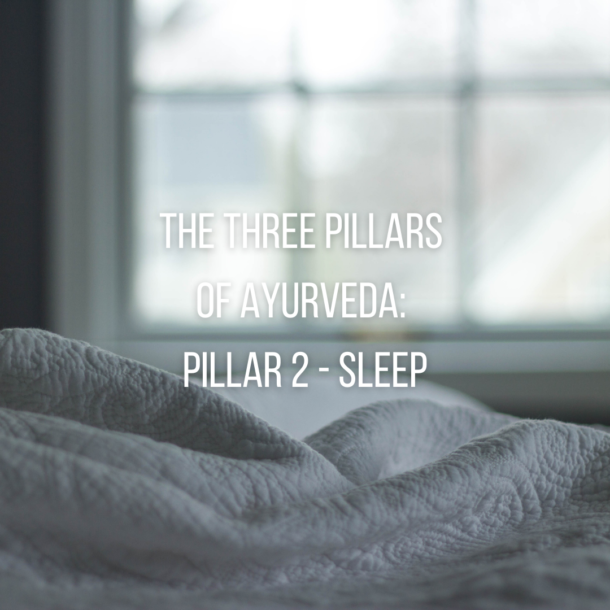
The importance of Brahmacharya – The Pillar of Energy Management
Listen to your body. Tune in to your mind.
Are you feeling invigorated, or are you feeling tired? How mindful are you of the way your thoughts are influencing your actions?
Are you using your energy in the right way, or is it leaking out of you like water through a sieve?
In Ayurveda and its sister science, yoga, there are two principles called the Yamas and the Niyamas. The Yamas and Niyamas are all about the ‘right way of living.’ If we practice them as part of our Ayurvedic lifestyle, they will help us to become more present and aware of how we treat ourselves, how we treat others, and how we relate to the world around us.
Think of the Yamas as moral disciplines or restraints – ethical rules that are designed to keep us in balance with the harmony of the universe – and the Niyamas like the habits we need to follow to live those disciplines in our everyday life. In Iyengar yoga, they’re described as ‘the golden keys to unlock the spiritual gates’ because they transform everything we do and connect all our actions to the deepest, most authentic part of ourselves.
Brahmacharya is one of the five Yamas.
In Sanskrit, Brahmacharya means ‘celibacy’, which unsurprisingly is enough to put a lot of people off the whole idea of following this pillar! However, it’s much more complex than that.
Brahmacharya is about mindfully conserving all your energies so that you have complete mastery over your thoughts and behaviours. It’s the behaviour or movement (‘char’) that leads us towards the divine higher power (‘Brahman’).
When you look at Brahmacharya in that way, doesn’t it feel a lot more attractive (and more realistic as a modern lifestyle concept) than thinking of it as enforced sexual abstinence?
The right use of energy
It’s human nature to want to pursue external desires, all those physical and material indulgences that distract us like butterflies but ultimately only give us fleeting pleasure. But when we do that, we waste the valuable energy we should be using to find peace and happiness within ourselves.
Brahmacharya is self-control over our mind, body and senses so that we can manage our life energy (‘prana’) properly instead of squandering it on arbitrary urges and desires.
Brahmacharya and sex
Where sex is concerned, that means resisting the impulse to engage mindlessly with another person, simply to take selfish pleasure from the sex act itself. However, even though Brahmacharya is traditionally the commitment ancient yogis made to abandon the pleasures of the body and devote all their energies to following the spiritual path, sex is a human need. If we choose to be completely celibate, that should be a decision that arises naturally and harmoniously from within us. We should never unwillingly force celibacy upon ourselves.
Instead, we should treat sex mindfully and, when we have sex with somebody, we should do so with love and respect. We should be fully mentally and physically engaged and treat this incredible intimacy with the utmost awareness and care. If we don’t, we’ve not only wasted our energy on a random act of fleeting self-indulgence, we’ve also wasted the opportunity to connect with the most precious part of ourselves and the other person. In the worst-case scenario, we’ve also harmed our partner by taking their sex from them and treating it like it has no meaning. Remember when I said there are five Yamas? The other four are Ahimsa (don’t hurt another being), Satya (stay truthful), Asteya (don’t take what doesn’t belong to you), and Aparigraha (no greed).
Looking at the above example, you can see how they all tie in together.
Brahmacharya and food, sleep, and other negative behaviours
You can exercise Brahmacharya in many other aspects of your daily life. For example, by using willpower when you’re eating food. Food is meant to nurture the mind and body, so never rush it. Take time to eat your food and be mindful of the taste and texture in every mouthful. Be aware of the nourishment within the food, and the life force it is gifting to your body. Don’t over-eat, and never eat out of boredom, just for the sake of eating. When we do, we become overweight and unhealthy. Our doshas fall out of balance, and sickness is the result.
It’s the same with sleep. Sleep is meant to heal and replenish the mind and body, so establish a healthy night-time routine, sleep naturally, and wake refreshed. Don’t overindulge in sleep by hitting the snooze button and lying lazily in bed when your mind and body want you to be awake and moving. Don’t go to bed before you’re properly tired. If you do either of these things, or if you eat too late and your sleep is disturbed as a result, you’ll most likely spend the rest of the day feeling tired, sluggish, and extremely low on energy. Continue on that path, your doshas will fall out of balance, and sickness will inevitably follow.
Any form of addiction or excessive behaviour will ultimately lead to poor mental and physical health. So will overdoing anything that isn’t worthwhile and enriching, like constantly checking your email or social media, binge-watching television, or even over-exercising to the point it becomes an obsession and begins damaging our body.
That’s why the pillar of energy management is so important.
An easy way to make Brahmacharya part of your daily life
We’ve already talked about Brahmacharya as it relates to sex, sleep, addiction, and excessive behaviour.
Now let’s look at the other distractions that are wasting your energy and preventing you from enjoying optimal health.
Think about your daily schedule.
· How much of your schedule is filled with activities that aren’t actually worthwhile, they’re just keeping you busy?
Maybe you’re keeping yourself busy to impress yourself or other people.
Maybe you’re keeping yourself busy to avoid looking too hard at the realities of life. (Considering how badly 2020’s gone for many of us, that’s understandable.)
Whatever the reason, keeping yourself unnecessarily busy is draining your life energy and damaging your mind and body. It’s also taking you further away from the essence of who you’re meant to be and preventing you from enjoying perfect health and achieving your full potential.
· What are you doing that’s draining your vitality?
· Are there people in your life who are bringing your energy down? Maybe because they’re overly needy, manipulative, or a negative influence on your behaviour?
· Do you use your energy in a positive, constructive way, or do you regularly look back at the end of the day and wonder why you feel so sick and tired when nothing worthwhile seems to have been accomplished?
· Is how and where you’re directing your energy helping you and the people around you, or harming you and the people around you?
· What do you enjoy doing that’s fulfilling and energising and makes you feel good?
· Who are the people that give you a boost, and just being around them fills you with energy?
· What are the activities you find most emotionally and spiritually rewarding, when you genuinely feel connected to your true self?
Ask yourself all those questions.
Think honestly about what you do, how you do it, and the way your actions affect you.
Listen carefully to what your body is telling you. Eliminate (or, at least, find ways to reduce significantly) all the negative behaviours, situations and people that are dragging your energy down, and consciously do much more of the things that make the best use of your energy and lead you closer to your higher power.
That’s the easiest way to make Brahmacharya part of your daily life, and I guarantee you’ll feel a lot healthier, happier, and fulfilled as a result.
According to Ayurveda, we can only enjoy optimal health when the ‘Three Pillars of Life’ – Food (Aahara), Sleep (Nidra), and Energy Management (Brahmacharya) – are in balance. When they’re working in balance, your digestion, immune system, and life force will be in perfect condition, you’ll be much less likely to be affected by sickness and disease, and you’ll feel stronger, calmer and more enriched in mind, body and spirit.
I hope you’ve enjoyed this short series of blogs about the three pillars of Ayurveda, and if you have any questions or would like to know how I can help you apply these pillars in your own life, please do not hesitatet o get in touch.
Until next time, to your enduring health and happiness in Ayurveda.







